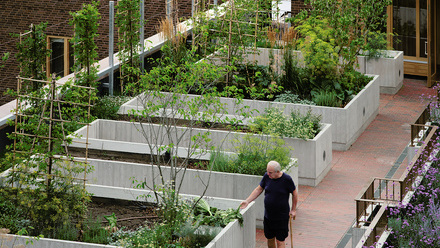Building better home care
A new study has examined how the quality and safety of care for the elderly is affected by the challenges faced by their home carers. Researchers set out to identify barriers to care delivery and to understand how to build a better home care system for both workers and those requiring support.
Two human factors models were used to map data, which identified three performance hurdles: time, organisational practices and job design.
Adaptive behaviour was identified as being key to managing time, however, this results in trade-offs between care delivery, quality and safety, and work-related quality of life. Home care was rated by workers as “always physically demanding” and “seldom manageable”.
The authors of the study, published in the journal Applied Ergonomics, said their findings “highlight the opportunity for a human factors systems perspective to provide a novel approach for both understanding home care and building better home care systems”.
They added: “Human factors is well placed to provide the expertise for optimising systems performance and promoting human wellbeing in the complex sociotechnical system of council-commissioned home care.”






